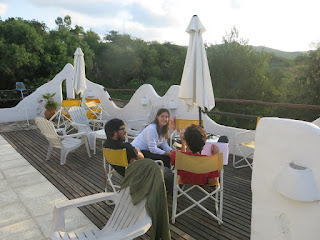Nominations are open for the Python Software Foundation's Board of Directors now through the end of May 15. Nominate yourself if you are able and inspired to help the PSF fulfill its mission:
"The mission of the Python Software Foundation is to promote, protect, and advance the Python programming language, and to support and facilitate the growth of a diverse and international community of Python programmers."
If you know someone who would be an excellent director, ask if they would like you nominate them!
What is the job? Directors do the business of the PSF, including:
- Appoint PSF officers.
- Manage the budget, allocate funds, and award grants.
- Raise money and recruit sponsors.
- Manage public relations, education, and outreach.
- Perform the PSF's legal duties as a non-profit corporation.
- Administer the PSF membership program and serve its members.
- Protect Python’s intellectual property rights and licenses: logos, trademarks, and open source licenses.
Read "Expectations of Directors" for details.
There are 11 directors, elected annually for a term of one year. Directors are unpaid volunteers. Candidates from anywhere in the world are welcome; members of the Board do not need to be residents or citizens of the United States.
The deadline for nominations is the end of May 15, Anywhere on Earth ("AoE"). As long as it is May 15 somewhere, nominations are open. A simple algorithm is this: make your nominations by 11:59pm on your local clock and you are certain to meet the deadline. Ballots to vote for the board members will be sent May 20, and the election closes May 30.
If you're moved to nominate yourself or someone else, here are the instructions:
How to nominate candidates in the 2016 PSF Board Election.
While you're on that page, check if your membership makes you eligible to actually vote in the election.
For more info, see the PSF home page and the PSF membership FAQ.






